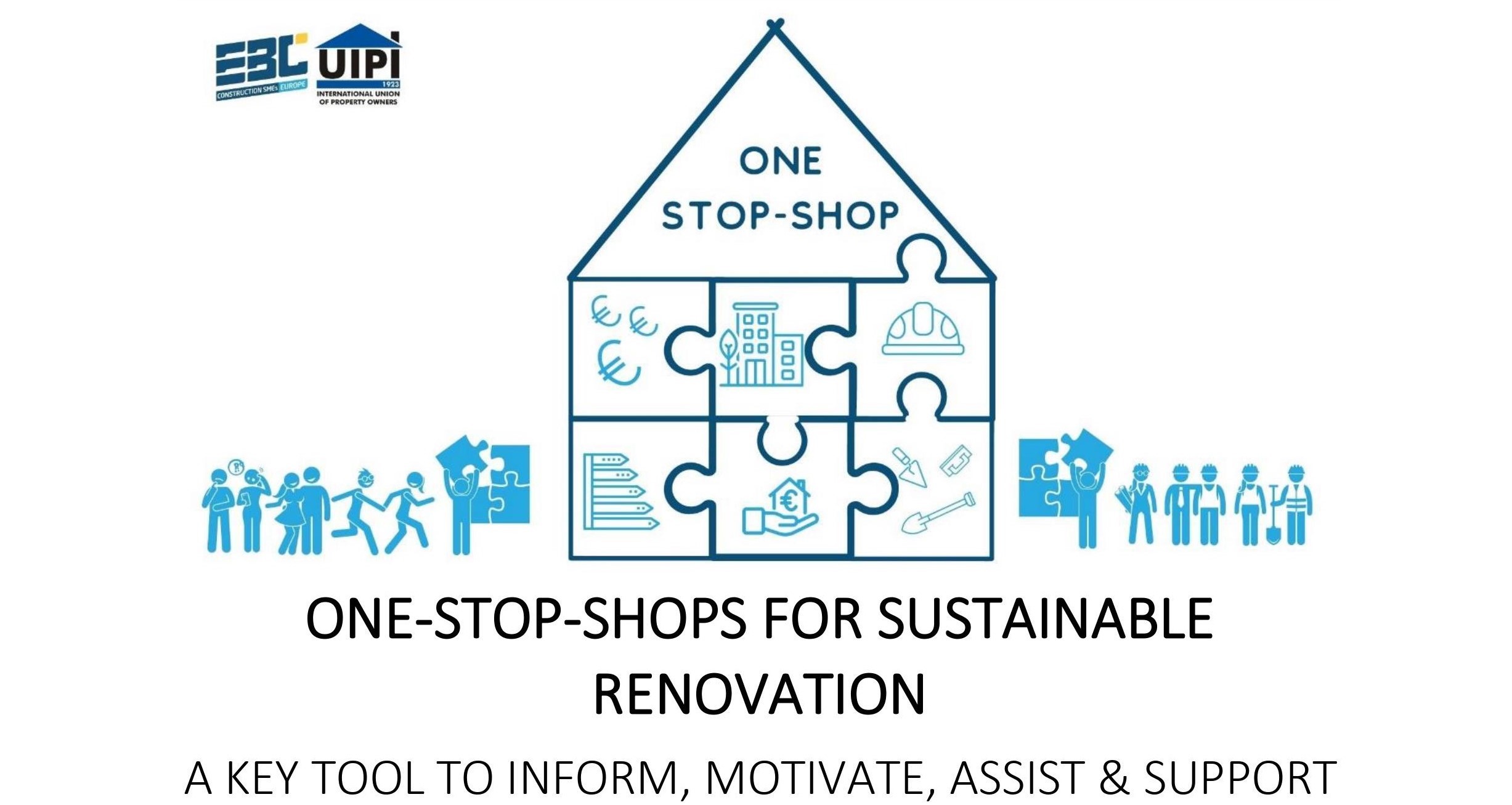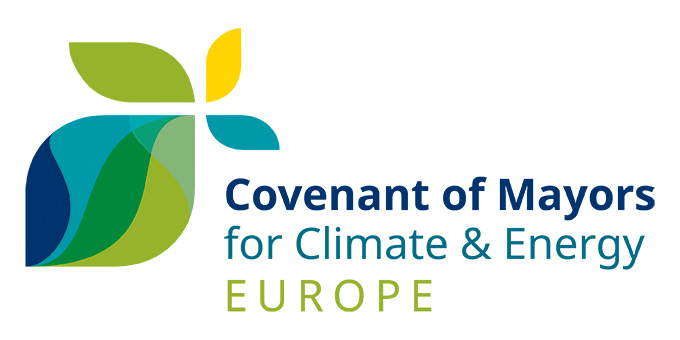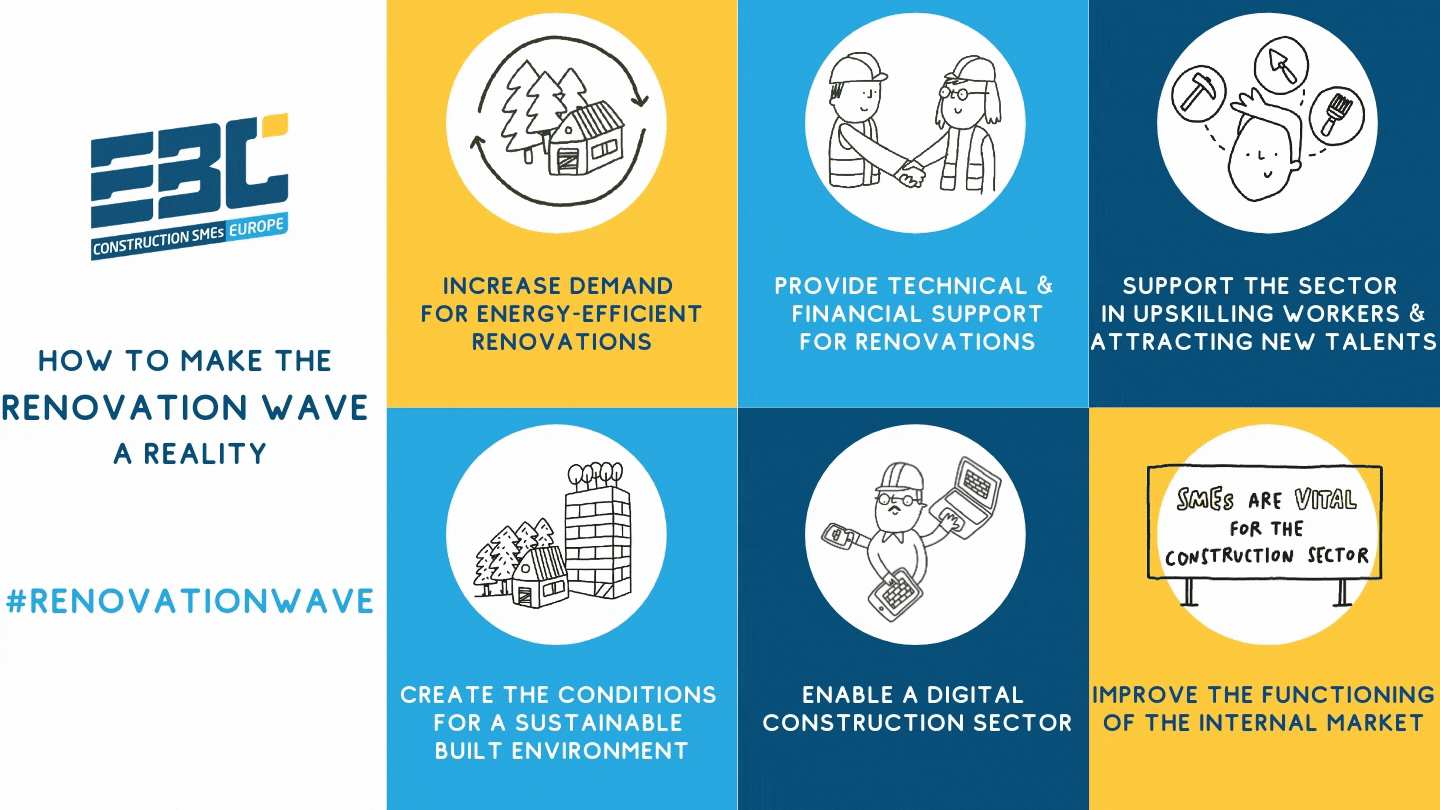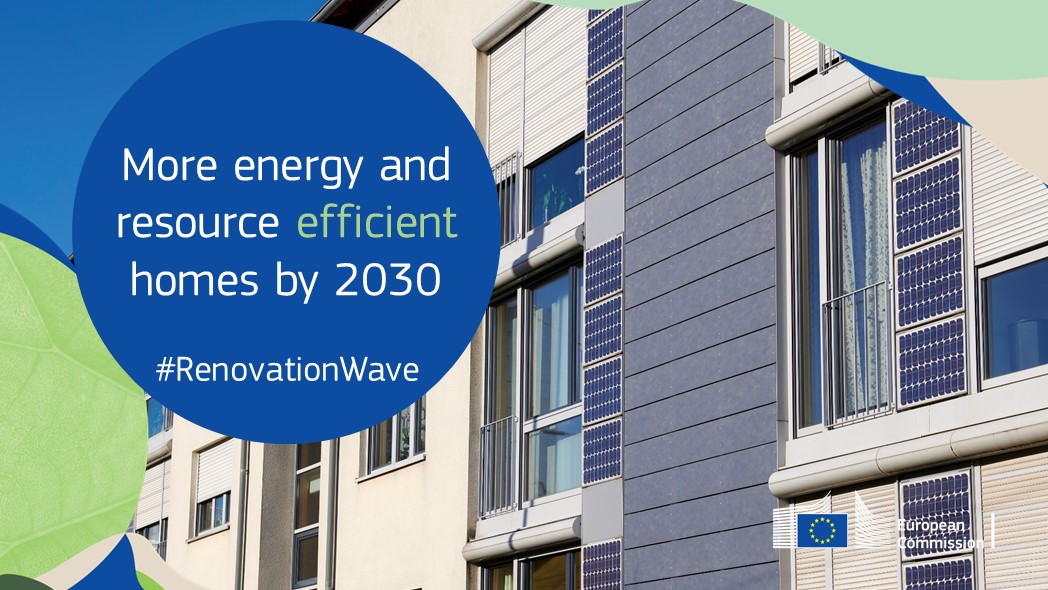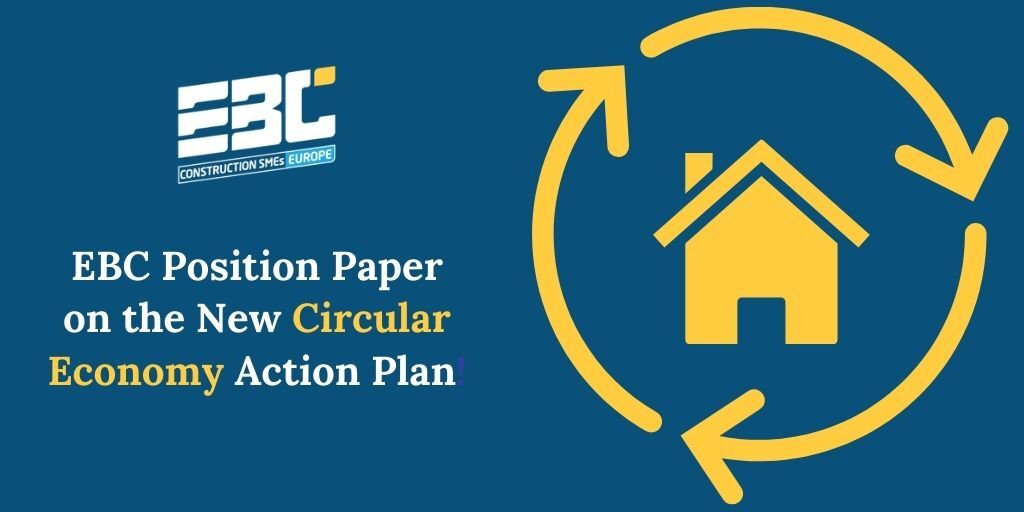
Sustainable buildings
Europe’s buildings are responsible for a significant part of its greenhouse gas emissions. If the vast majority of these emissions are produced during the materials extraction and production and use phases of buildings, the emissions generated during the building phase are also part of the whole-lifecycle greenhouse gas emissions of buildings, estimated at 5-12% of total national greenhouse emissions by the European Commission.
EBC monitors the development of tools to address whole-lifecycle emissions of buildings to facilitate the uptake and use by construction SMEs and craft trades. These include voluntary tools such as Level(s), a voluntary sustainability reporting framework, or relevant European Standards and provisions in EU legislation, all aiming to curb the overall emissions of Europe’s building stock.
Related News
One-stop-shops for sustainable renovation: A key tool to inform, motivate, assist and support
In a joint paper, the European Builders Confederation (EBC) and the International Union of Property Owners (UIPI) call for a robust political commitment to enable the long-term vision required for...
Sustainable buildings: First meeting between Covenant of Mayors and EU organisations marks start of discussion
Yesterday, a first meeting organised by the Covenant of Mayors and joined by EBC among various other organisations from the built environment took place to discuss possibilities to accelerate the...
Renovation wave: Only a stable and enabling policy framework will stimulate demand
EBC considers the European Commission’s strategy on “A Renovation Wave for Europe – greening our buildings, creating jobs, improving lives”, as an important step to better align building-relat...
EBC welcomes Renovation Wave Communication as a step towards more energy efficiency renovations
Today the European Commission (EC) published its long-awaited communication on “A Renovation Wave for climate neutrality and recovery”, which highlights the importance of energy efficiency renova...
EBC talks about the Renovation wave at the SolarPower Summit
Last week, EBC participated in the SolarPower Summit 2020, SolarPower Europe’s annual flagship event. This edition focused on the contribution of solar-based solutions to achieve a fully decarbonise...
Circular Economy: construction SMEs are vital to achieve the EU environmental goals
After months of forced standstill, discussions on the EU's ambitions for a circular economy have resumed in Brussels and across Europe. In response to the New Circular Economy Action Plan...

